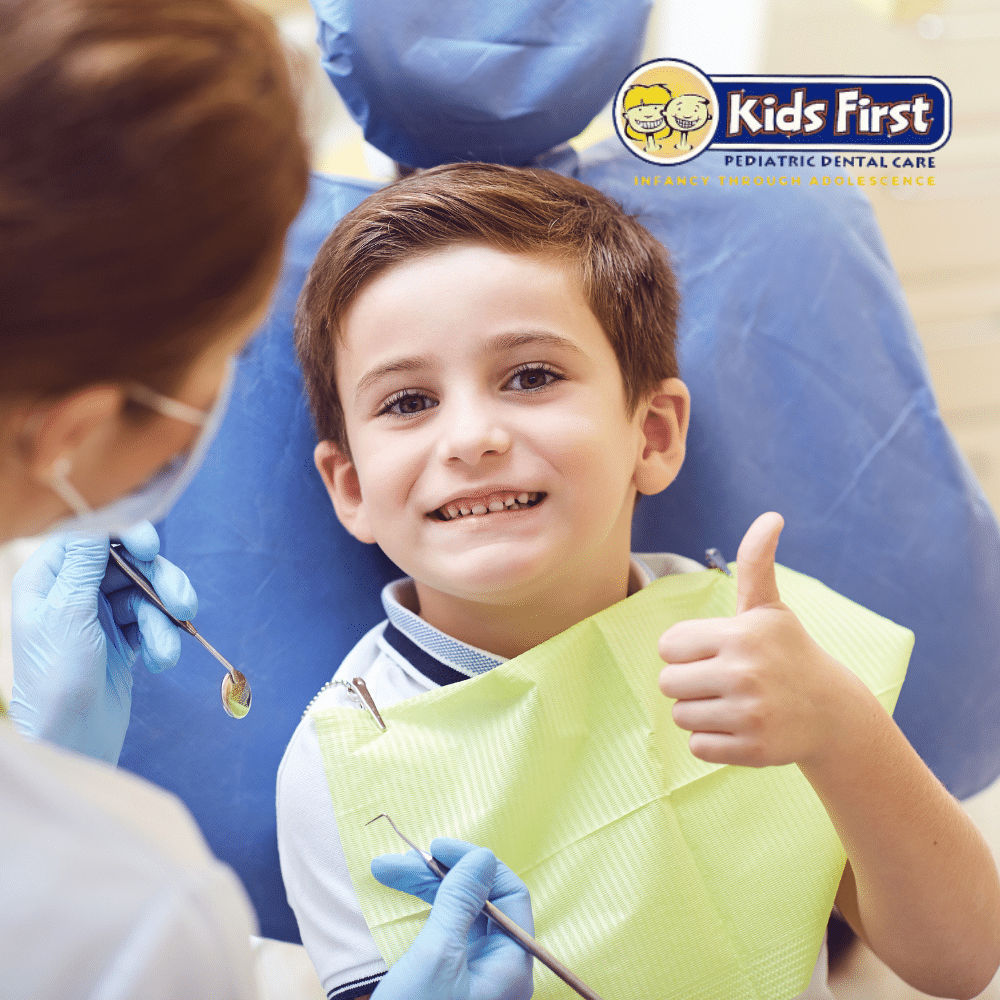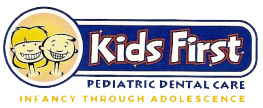
When it comes to keeping your child’s teeth healthy, brushing and flossing aren’t the only things that matter. What your child eats—and how often they eat—plays a huge role in the health of their smile. At Kids First Pediatric Dental Care, we’re passionate about helping families understand how diet impacts dental development and cavity prevention. Whether your child is a picky eater or has a sweet tooth, this guide will show you how everyday food choices can protect (or harm) their teeth.
The Mouth-Food Connection
Your child’s mouth is the first stop for everything they eat and drink. As soon as food enters their mouth, it begins to interact with the bacteria that live on the teeth and gums. These bacteria feed on sugars and starches, producing acids that attack the enamel—the hard outer surface of the tooth.
Over time, if these acid attacks happen too often without being balanced by proper oral hygiene or healthy eating habits, they can lead to tooth decay, cavities, and even gum inflammation.
How Sugar Impacts Tiny Teeth
Let’s start with the biggest dietary culprit: sugar. We’re not just talking about candy here—sugar is found in many everyday snacks and drinks, including:
- Juice boxes
- Sports drinks
- Flavored yogurts
- Granola bars
- Breakfast cereals
When sugar sits on the teeth, it feeds cavity-causing bacteria, leading to plaque buildup and enamel erosion. And because kids’ tooth enamel is thinner and more delicate than adults’, the damage can happen faster.
What You Can Do:
- Limit sugary snacks and drinks, especially between meals.
- Offer water instead of juice or soda.
- Brush your child’s teeth after consuming sweets whenever possible.
Snack Attacks: Frequency Matters Too
It’s not just what your child eats—it’s also how often. Frequent snacking gives bacteria more chances to produce acid, especially if teeth aren’t cleaned afterward.
For example, sipping on juice throughout the day or grazing on crackers can cause just as much harm as eating candy—sometimes more.
Healthy Snacking Tips:
- Stick to designated snack times instead of all-day grazing.
- Encourage rinsing with water after snacks.
- Choose tooth-friendly options like cheese, apple slices, or raw veggies.
Foods That Strengthen Teeth
Luckily, not all foods are bad for your child’s teeth. In fact, some foods can actually strengthen and protect their developing smile.
Tooth-Friendly Foods Include:
- Dairy Products: Milk, cheese, and yogurt are high in calcium and phosphates that help rebuild enamel and support bone health.
- Crunchy Fruits and Veggies: Apples, carrots, and celery act like natural toothbrushes by scrubbing teeth and boosting saliva flow.
- Lean Proteins: Eggs, chicken, and fish provide important nutrients like phosphorus that aid in tooth development.
- Water: Especially fluoridated water, helps wash away food particles and neutralize acids.
The Role of Fluoride and Calcium
Fluoride and calcium are two essential nutrients for healthy teeth—and they’re even more important during childhood, when teeth and bones are still developing.
- Fluoride helps strengthen enamel and makes teeth more resistant to decay.
- Calcium supports the formation of strong tooth structures and jawbones.
How to Boost These Nutrients:
- Drink fluoridated tap water (if available in your area).
- Serve calcium-rich foods like dairy, leafy greens, and almonds.
- Ask Dr. Malek about fluoride treatments and supplements if needed.
What About Vitamins?
Your child should consume a healthy diet that includes key vitamins that support gum health and tissue development. Important ones include:
- Vitamin D – Helps the body absorb calcium
- Vitamin C – Promotes healthy gums and healing
- Vitamin A – Supports saliva production and oral tissue repair
A balanced diet that includes a variety of fruits, vegetables, lean proteins, and whole grains typically provides everything your child needs.
Dental Concerns with Special Diets
If your child follows a special diet—whether vegetarian, vegan, or due to allergies—it’s important to ensure they’re still getting the proper nutrition needed for oral health. Some common challenges include:
- Lack of calcium or vitamin D in dairy-free diets
- Frequent intake of fruit-based smoothies or juices in plant-based diets
- Sticky or processed snack substitutions with added sugars
Our pediatric dental team can work with your family to identify potential gaps and make sure your child’s dental health stays on track.
Developing Healthy Habits Early
Teaching kids to make smart food choices early helps them develop a positive relationship with food and oral health. You don’t have to eliminate treats entirely—but balance is key!
Here are a few habits to encourage:
- Brush twice a day with fluoride toothpaste.
- Floss once a day (with parental help for younger kids).
- Choose water as the main drink throughout the day.
- Eat meals at regular times and limit snacking.
- Involve kids in preparing healthy lunches and snacks.
Team Up with Your Pediatric Dentist

At Kids First Pediatric Dental Care, we’re here to help your child maintain a happy, healthy smile—one bite at a time. Dr. Malek and our team focus on prevention, education, and fun, judgment-free care that puts kids at ease.
During your child’s dental visit, we can:
- Review their current diet and offer personalized tips
- Recommend fluoride treatments or dental sealant if needed
- Monitor tooth development and cavity risk over time
- Provide guidance for parents with picky eaters or special dietary needs
Keep Your Child’s Smile Bright—Schedule Today!
Want to make sure your child’s diet is supporting their dental health? We’re here to help! Schedule an appointment with Dr. Malek and our friendly pediatric dental team in Zanesville, Ohio today. Give us a call at (740- 796-8517). Together, we’ll keep your child’s smile shining from the inside out.

